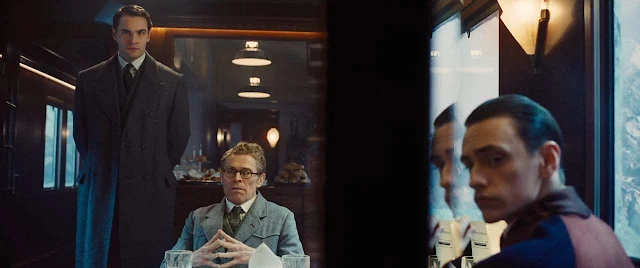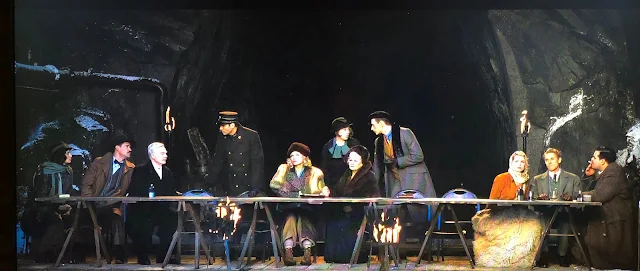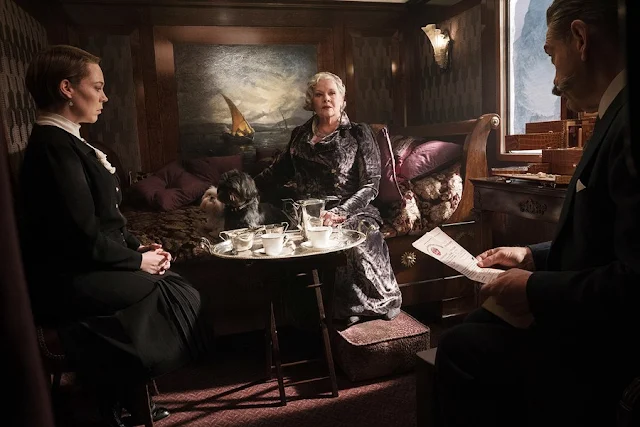 |
| Judi Dench and Kenneth Branagh in All Is True |
Not much of All Is True is true; most of it is extrapolated from the scraps of documentation we possess about the life of William Shakespeare and turned by screenwriter Ben Elton into a domestic drama about the playwright's last years. It might have been called Shakespeare in Retirement. In Elton's imagining, Shakespeare (Kenneth Branagh hidden beneath a prosthetic nose and forehead) has left London after the Globe burns down during a performance of Henry VIII, which was also known as All Is True. He goes home to Stratford to mourn his son Hamnet, who had died many years earlier, and to plant a garden in his memory. Reunited with his wife, Anne (Judi Dench) and his daughters Susanna (Lydia Wilson) and Judith (Kathryn Wilder), he is plunged into various family difficulties. Susanna's husband, John Hall (Hadley Fraser), is a stern Puritan who, as Shakespeare says, would like to close the theaters from which the poet made his fortune. In fact, Susanna may be cheating on her husband and have contracted syphilis, as a scene in which she orders mercury -- then a treatment for the disease -- implies. Judith is a sulky 28-year-old self-declared "spinster," who resents her father for his preference for her dead brother. Eventually she marries Thomas Quiney (Jack Colgrave Hirst), only to find out that he has impregnated another woman, whereupon Shakespeare strikes Quiney from the will in which he has also left Anne the "second-best bed." (A real Shakespeare conundrum that gets a sly explication in the film.) It turns out that Shakespeare thought Hamnet to have inherited his gifts on the basis of some poems the boy supposedly wrote, when in fact Judith was the author of the poems. And though Hamnet was said to have died of the plague, the truth comes out that he committed suicide when Judith threatened to expose her authorship. The preposterous melodramatics of the screenplay and the plodding direction by Branagh fatally undermine the film, which has occasional good moments. There's a scene in which Shakespeare meets the Earl of Southampton, the beautiful youth of the sonnets now grown old, that's mostly a showpiece for Branagh and Ian McKellen as Southampton. Branagh/Shakespeare recites Sonnet No. 29 ("When in disgrace with fortune and men's eyes") and McKellen/Southampton repeats it. I think the scene was intended to introduce a frisson of homoeroticism, but it's not strong enough. Still, there's pleasure to be had in hearing two great actors speak Shakespeare's words.










